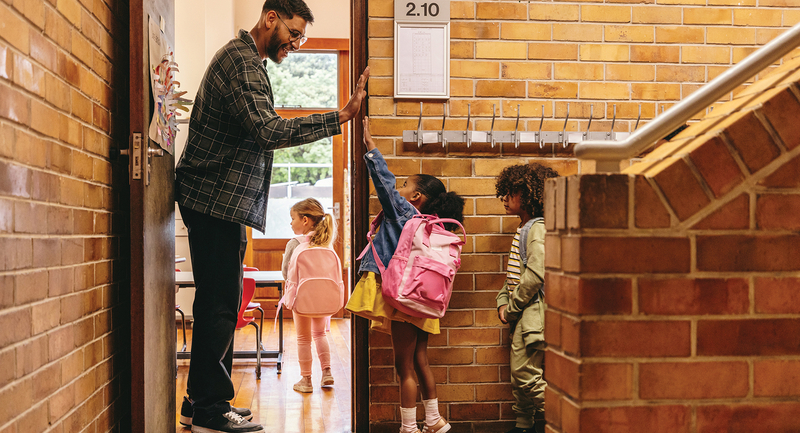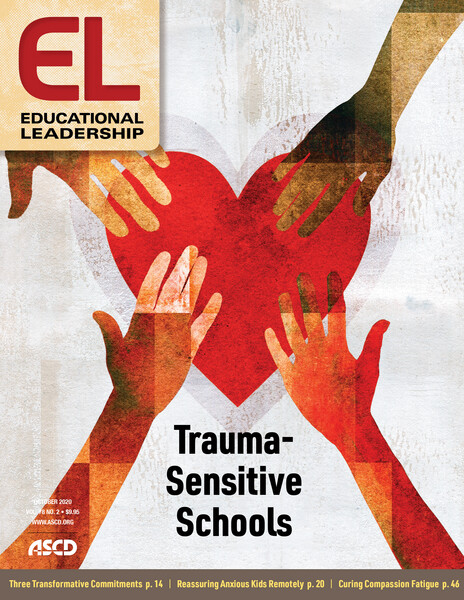Ten years ago, my husband and I chose to enroll our Black son in our local public school for kindergarten, in the district I'd worked in for 14 years. The year he started school, I stepped into a role as a leadership coach, assigned to work with site administrators and leadership teams on tackling racial inequities.
In early August, the new superintendent (a white male) addressed all the administrators in the district. He spent perhaps an hour decrying the racial inequities in our city, providing statistic after statistic after statistic. He spoke about the injustices that Black children in our schools experience on a daily basis—how their intellects aren't recognized and they are funneled into sports programs; how teachers respond with disproportionate severity to the normal, goofy behavior of five- and six-year-old boys; how Black boys (regardless of their socioeconomic status) are at the bottom of so many academic indicators of success. He was passionate and eloquent. But by the end of his speech, my heart was racing, my mouth was dry, and I felt queasy.
"Does He Think Statistics Will Motivate Us?"
While this man had spoken, I observed my colleagues to gauge their reactions. Some had applauded. Others sat motionless. Afterward, as we milled around the big auditorium, I asked folks what they thought. I heard a number of ambivalent comments that I interpreted as coming from a desire to give the new guy a chance, and some other comments (from white educators) that expressed appreciation that the superintendent had named the inequities in the district.
Sandra was a Black assistant principal whom I'd been friends with for a few years. When I asked her what she thought, she shook her head. "He's well-intentioned, I'm sure. But this is our first morning back after summer, and this is hard to hear. I mean, we know this already! Does he think we don't know how bad things are for Black kids in this country or district? Does he think that more statistics will motivate us?"
Sandra then asked me what I thought.
"I was wondering who he was addressing," I said. "I was trying to figure out whether he was hoping to wake up non-Black educators to inequities, or whether he wanted to tell Black educators that he knows about their plight. And I kept waiting for him to describe what we're going to do about it."
Sandra nodded. "The thing is," she said, "when I hear those numbers, I'm thinking about my dad, and husband, and brothers. I'm remembering being sent to the office over and over in middle school because I was told I was disrespectful. When he shares those statistics, they aren't his flesh and blood." She stopped and looked away.
"I hear you," I said. "Statistics alone are dehumanizing."
Sandra put her hand on my arm. "Isn't your son starting school this year?" I said yes and told her that we'd decided to try our local public school. "Well then, how the heck are you feeling right now?"
"Not so good," I said.
"I work in this district," Sandra said, "I love this city, but I don't know if I would send my Black kid to school here. And his speech didn't make me feel any more confident."
I sighed. "Me neither," I answered as I visualized my son in his classroom with his white female kindergarten teacher and in his school with his white female principal. Which statistics would he be a part of—would he be labeled with ADHD? Would he be among the disproportionate number of Black boys who were suspended? Would he be described as "having potential, but …"?
Name Inequities—But Also Work to Change Them
Although more than 10 years have passed since the start of that school year, I've thought about this superintendent's opening remarks many times. Now, more than ever, we need leaders who not only recognize and name the racial inequities that plague our schools, but who also take action to address them.
For example, I appreciate when my son's current principal emails parents declaring his support for Black Lives Matter. At the same time, I wince when I get these emails. Every single day, over and over again, I'm reminded of the physical and psychological dangers that my husband and son are in. It's exhausting. And: I want change. I want the emails to include descriptions of the policies the school is changing or adopting that will dismantle the pervasive racism in our schools.
My husband rarely reads the principal's emails (or the news). "They're one more reminder of my own pain and trauma," he says. Reading news and data about the dangers Black youth face makes his anxiety about our son surge. He's on a long media sabbatical. It is true that I am only one person, one (non-Black) mother of a Black boy. My husband is one person also—one Black man. I don't know how representative our experiences are of others.
I certainly don't want my son to be in a school led by a Pollyannaish principal who is in denial of what's going on. And yes, I want to know that his school believes that Black lives matter. But I also want to see action. What's being done to hire and retain BIPOC (Black, indigenous, and people of color) teachers? What's being done to transform the curriculum so that people of the global majority are humanized and centered? What's being done to teach the adults in the school how to have conversations with each other about their biases? Solidarity is nice, but we need action.
And also: Don't email me only when another Black man has been killed by police. Don't tell me, over and over, about how Black boys have all the odds stacked against them. Tell me about their resilience. Their quirky passions. Their creative genius. Their leadership skills and poetry. Don't focus on Black bodies only when they're being violated. Tell me about their aliveness.







